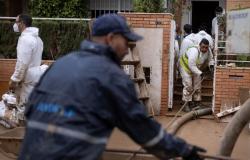As part of the Pink October 2024 edition campaign, Médecins Sans Frontières donated inputs dedicated to cancer screening to the National Office of Reproductive Health, this Tuesday, September 24, 2024. This donation aims to strengthen the efforts of the Ministry of Health and Social Development in the fight against breast and cervical cancer by facilitating access to free screening in order to reduce the number of deaths linked to this disease.
Since 2018, MSF has been working in the hemato-oncology department of the Point G hospital in Bamako to support the authorities in the free treatment of breast and cervical cancer.
The care package offered by MSF includes specific care such as chemotherapy, surgery and radiotherapy, palliative care with home visits to patients, social support for the most vulnerable, psychological care as well as screening activities. early.
Since the beginning of 2024, MSF teams and those of the Ministry of Health and Social Development have begun a process of readjustment around the care offered by MSF. Thus, since March 2024, MSF teams have stopped activities related to breast and cervical cancer screening in all structures where the organization carried out this activity.
“After six years of collaboration with the Ministry of Health, we set up a joint steering committee in order to redefine and readjust the care provided by MSF. MSF will now focus its support exclusively on direct medical care for patients who screen positive. That said, women will continue to benefit from free care from MSF after they have brought the results of the tests carried out, analyzed and approved at a medical meeting of oncologists at the hemato-oncology department of the hospital’s university hospital. G-spot »declares GAMBA Félicité Chantal, MSF medical coordinator in Mali.
Once the cases have been proven at a medical meeting, she adds, MSF admits new inclusions in its cohort and supports patients throughout their treatment process until remission by covering the costs related to chemo, radiotherapy and surgery. “Our palliative care activities with home consultations for patients as well as social and psychological support will remain,” reassures Dr Chantal.
Early detection of breast and cervical cancer is no longer an integral part of MSF’s activities. However, we will continue to support the Ministry’s efforts in training staff and providing timely inputs and encourage women to early detection, especially during this Pink October campaign.
From 2020 to March 2024, 298,672 women benefited from free screening (breast and uterus) including 2654 women who are positive and included in the care offered by MSF, 7 692 chemotherapy carried out, 11 844 medical consultations, 15214 dressings made and 2 270 home visits for palliative care (psycho-social support, home dressing, medical consultation).
At the Point G hospital, Médecins Sans Frontières built toxic product waste areas and also engaged in the rehabilitation and equipment of the analysis laboratory (Anapath) to help Ministry staff carry out quality examinations and within shorter deadlines.
We are open to coordination with the authorities to ensure that populations continue to receive quality medical care and that the screening service and treatment can function well.
CCOM/MSF







